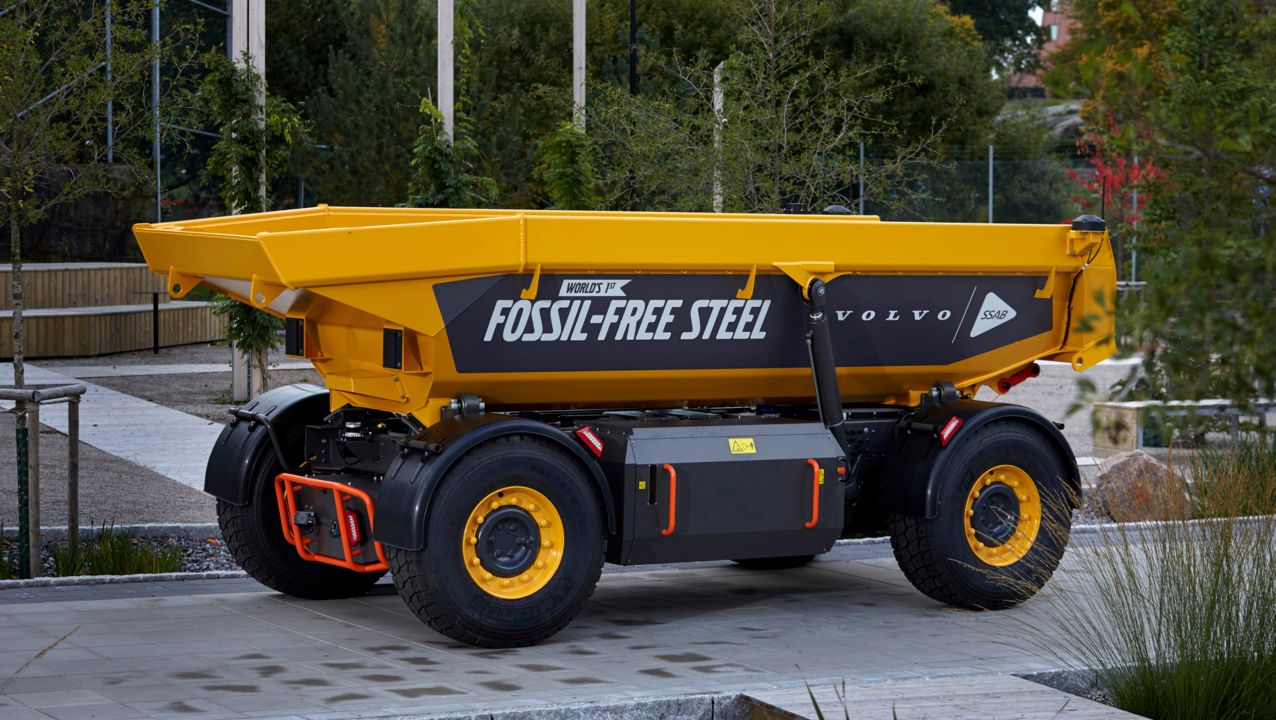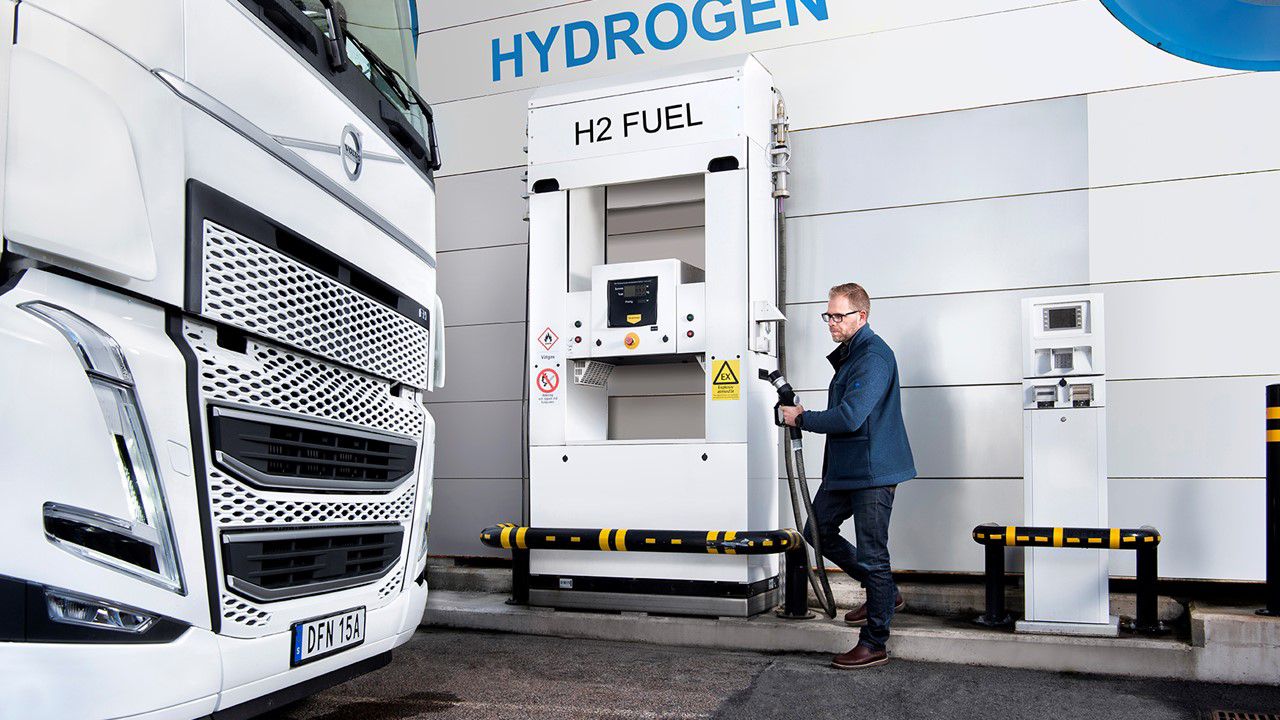This collaboration agreement with SSAB enables us to start replacing parts of the steel currently used in our products with fossil-free steel, as the first commercial vehicle manufacturer in the industry. October 13 we showcased the world’s first vehicle (or product) made of fossil-free steel. Volvo Group is committed to the Paris climate agreement and to decarbonize transport. Part of that transformation is to start replacing the materials in our vehicles with fossil-free alternatives.

